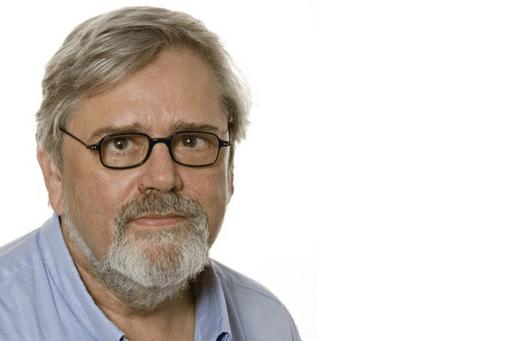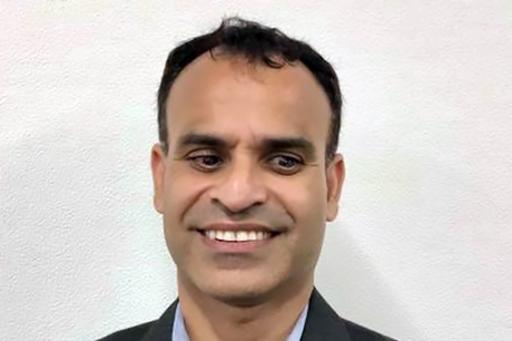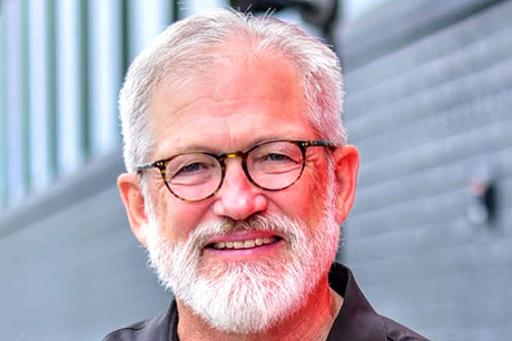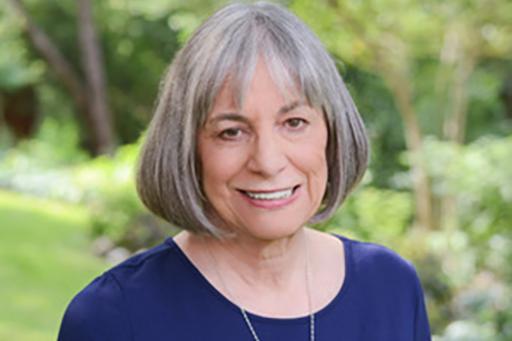IMC17 Keynote speakers
Speakers at the conference.

Stig Larsson
Professor emeritus, Department of Social Medicine and Global Health, Lund University
Professor Larsson took his Ph.D. in sociology (1983) at Lund University and became associated professor 1989 in social work at Gothenburg University. In 1992 he was appointed as professor in social development at the Nordic School of Public Health. From 1997 to 2008 he was director of The Disability and Rehabilitation Research Centre at Lund university in corporation with other universities in southern Sweden. During the last years Larsson has been affiliated to the Department of Social Medicine and Global Health at the Medicine faculty at Lund University as his main scientific focus since many years is cross disciplinary research.
In the beginning of his career he worked mostly in the field of criminology and what at that time was titled deviant behaviour. He created the paradigm shift in prostitution from blaming the women to exploring motivation of the men. His doctoral dissertation demonstrated the how prostitutes was forced into the sex trade. Since Sweden 1999 as the first country criminalized the buying partners but decriminalized the selling this model had been into legislation in many European states but also in other parts of the world such as in South Korea.
In the last decades Dr Larsson’s research has mainly been geared to the sphere of disability, where he has led several projects with a multidisciplinary design. But he has done a considerable work also in sociology, social theory, social work, social policy, public health and international social development. He has written 25 books and hundreds of articles and book chapters alone or together with cowriters.
He has also been engaged in developing the infrastructure of higher education and science in Sweden and Scandinavia in several professional and academic organisations. He was initiating the Sweden association for research on social work (FORSA), which he chaired 1991–95. He took the initiative to found Socialvetenskaplig tidskrift (Swedish Journal of Social Research), which he edited 1994–2003. He was also one of the founders of the Nordic Network for Disability Research (NNDR), where he sat on the board from the start in 1996 until 2001 and was president of the Swedish Social Policy Association 2002–2008.
Internationally Dr Larsson has worked not at least with the preparing and realizing construction of the UN convention of rights for People with Disability as he was a board member of GLADNET, Global Applied Disability Research and Information Network on Employment and Training 2001–2011 and a member of the Executive Committee of RI, Rehabilitation International 2004–2008. He has also since many years been engaged in the International Consortium of Social Development, ICSD and is still a board member of its European Branch. The noted organisations have all had rolls as consultant status in the UN-system. Professor Stig Larsson himself is blind after many years as visually impaired with low vision.
Abstract
Orientation, Mobility, Science, Theory and Praxis
By Professor em. Stig Larsson, Lund university
With this contribution I would like to highlight some of the main themes of the conference by using a selection of recently published works within the social sciences and humanities. The aim is to discuss fundamental ideas from theory of knowledge and philosophy that reflect how we organize society at large. I hope this can generate ideas for how we can support and train people with disabilities.
Among the works that will be discussed are those of Martin Hägglund in the USA, Hartmut Rosa in Germany, and Rutger Bregman in the Netherlands. I will try to analyze how some fundamental ideas govern the welfare system and shape how we organize assistance and training for persons living with blindness and visual impairment – including education, professional assistance, assistive technology and financial security. How such support systems are implemented is not only a function of political ideologies and the application of power in various societies, but also of traditions, religion and structures that affect individuals’ ways of coping with disability. The question is how the interplay between different sets of determinants, on various levels of abstraction, can be understood, within the seemingly limited area of orientation and mobility for visually impaired.
Hopefully, my contribution will shed light on some of the main social dimensions we will meet in future and thereby give insights into how orientation and mobility for the visually impaired can be facilitated.

Dr. Kamal Lamichhane
Division of Disability Sciences, Faculty of Human Sciences, University of Tsukuba
Can we overcome obstacles to the path of inclusion and economic independence?
ABSTRACT
Social inclusion and economic independence are some of the major issues individuals with disabilities face. Based on my research on the importance of education and labor market participation to achieve inclusive society, this keynote highlights the challenges faced by individuals with vision impairments in the path of independence. Several factors create obstacle towards the path of independent living and economic empowerment of these people including disabling environment, resulting from the misconceptions about their ability to live quality of life. Despite the significance of independent living skills, particularly orientation and mobility (O&M), in most parts of the low and middle income countries, they are deprived of such basic skills. One of the reasons is that still many children have no access to quality education and adult have no place to learn it within their community. Therefore, it is recommended that programs targeted to equip these people with skills be effectively implemented not only to achieve sustainable development goals but also to create a society with social justice, equality, fairness and greater sense of inclusivity.
Bio
Dr. Kamal Lamichhane is associate professor at the division of disability sciences, faculty of human sciences in the University of Tsukuba in Japan. He is also an affiliated researcher at the University of Tokyo. His fields of research are: Disability Studies, Economics of Education and Inclusive Education.
Besides focusing on human capital formation and disability-inclusive development, Dr. Lamichhane also studies the association of disability and poverty with the particular focus on low and middle income countries. His book entitled “Disability, Education and Employment in Developing Countries: from Charity to Investment”, published from Cambridge University press in 2015 received the Japan society for International Development (JASID) incentive award 2016. In 2019, he published his memoir in Nepali called “antardrishti”, advocating for dignity, self-esteem and fairness with rights, justice and equality of opportunity for persons with disabilities. He is chosen as ten outstanding young persons of the world (TOYP) for 2018 in the category of academic leadership and accomplishment by junior chamber international (JCI).
Dr. Lamichhane has written several peer reviewed articles on the relationships between disability, education and labor markets and are published in the journals such as international journal of educational development, oxford development studies, economics of education review, international journal of inclusive education, disability and society, scandinavian journal of disability research etc.
Dr. Lamichhane earned his Ph.D. from the University of Tokyo. He is the first person with visual impairments in his home country Nepal to receive the doctrate. Due to his visual impairments, Dr. Lamichhane could not receive education until he turned 12.

Duane Geruschat
PhD, Institute of the School of Medicine at John Hopkins University
Regenerative Vision - Retinal chip implants and gene therapy
The theory of how sight is provided and the development of an orientation and mobilityprogram to improve the use of this new vision.
ABSTRACT
The commercial availability of retinal prostheses and gene therapy treatments for blindness is now a reality. As we move from research subjects to working with consumers they have expectations of what they will be able to see and do with an implant. Orientation and Mobility rehabilitation is one aspect of a comprehensive delivery system that will provide each consumer with the opportunity to maximize their ability with the implant. This presentation is an overview of the basic theory of how these new technologies restore vision. This presentation will also describe the functional challenges and opportunities with restored vision and the importance of OM instruction to maximize the user’s potential.
The goals of this presentation are:
- Provide the OM instructor with increased knowledge about the different approaches to vision restoration, with emphasis on gene therapy and prosthetic devices.
- Describe the opportunities and challenges of providing rehabilitation.
- Highlight the importance of OM instruction as the user adapts to visual restoration.
* - Provide an understanding of realistic expectations with the current technologies.
BIO
Duane R. Geruschat, Ph.D is a research associate in Ophthalmology at the Wilmer Eye Institute of the School of Medicine at Johns Hopkins University. He is a certified orientation and mobility specialist and low vision therapist with over 40 years of experience in both practice and research. He served as the Editor in Chief of The Journal of Visual Impairment and Blindness from 2005 - 2012.
His early research involved ambulation and low vision, including studies on how low vision pedestrians use their remaining vision to navigate street crossings and complex intersections. Since 2004 he has worked as a member of a research team at Johns Hopkins University studying various types of prosthetic vision including the Optobionics Artificial Silicon Retina (ASR) and the Argus II from Second Sight Medical Products. He was also a member of the study team at the University of Pennsylvania/Spark Therapeutics and their RPE65 gene therapy treatment designed to improve the vision of patients with lebers congenital amaurosis. Both of these products have been approved for commercial distribution. Currently he is a member of the research team of Astellas Pharmaceutical, a Japanese company developing a clinical trial using gene therapy.

Anne Corn
Professor emerita, Departments of Special Education, Ophthalmology and Visual Sciences at Vanderbilt University
Navigating the Personal Attributes that Lead to Independent Travel
ABSTRACT
This keynote is not about the knowledge and skills of orientation, mobility, or way finding, that are essential components for moving about the environment. Rather, this presentation is about the personal attributes that can challenge or strengthen one’s ability to confidently and efficiently take control of one’s transportation needs. This presentation is about social relationships, emotions, and experiences of those who are non drivers and those who are able to pursue a low vision driver’s license using a bioptic telescopic system.
Professionals with typical vision, and especially those who drive, may not have had similar personal experiences as those with low vision or blindness in seeking transportation. When and how should you ask for a ride? How do you deal with the frustrations of non driving? and Do you want to pursue low vision driving? These are just a few of the questions that will be addressed.
The purpose of this presentation is to encourage participants to attend to the psychological and social skills one needs to master for independent travel as well as for looking at options that are available within a transportation budget. While the person who is highly skilled in mastering orientation, mobility, and way finding will be more mobile, the acquisition of these skills and the use of these skills are tied to one’s sense of self and one’s relationships with others involved in the journey to becoming an independent traveler.
BIO
Anne Corn is professor emerita from the Departments of Special Education, Ophthalmology and Visual Sciences at Vanderbilt University. Currently, in retirement, she is a (volunteer) Research Professor in the Department of Ophthalmology at The University of Cincinnati. In addition to preparing teachers of students with visual impairments, she has enjoyed working with future orientation and mobility (O&M) specialists and sponsoring dissertations that address O&M.
Professor Corn has numerous publications and research articles, and is the senior editor of Foundations of Low Vision: Clinical and Functional Perspectives. She has held offices including, but not limited to: Chair of the Personnel Preparation Division of the Association for the Education and Rehabilitation of the Blind and Visually Impaired, a member of the Governing Board of the Texas School for the Blind and Visually Impaired, and Chair of the Committee that established the National Agenda for the Education of Students with Visual Impairments, Including those with Multiple Disabilities. Today, Dr. Corn consults with families of children regarding education services, and she enjoys writing and volunteering for the National Organization for Albinism and Hypopigmentation.
Professor Corn is very pleased to return to Sweden for her third visit. She has given presentations at the Tomteboda Resource Center for the Visually Impaired, as a visiting professor at the University of Lund, and also as a “opponent” for a doctoral defense at the Karolinska Medical School.
Orientation and mobility has always been an interest for Professor Corn along with social skills and the functional use of low vision. She is the senior author of the soon-to-be published curriculum book, Finding Wheels: Building Strategies for Building Independent Travel Skills, second edition. In recent years Professor Corn has also been interested in furthering possibilities for people with low vision to pursue a drivers license with bioptic telescopic systems.